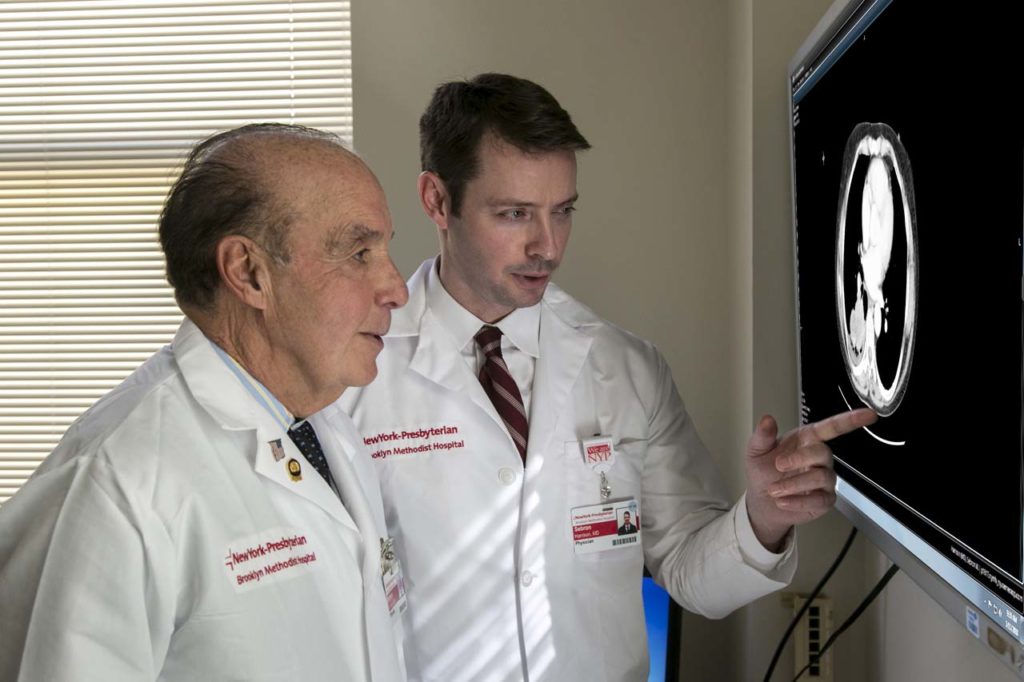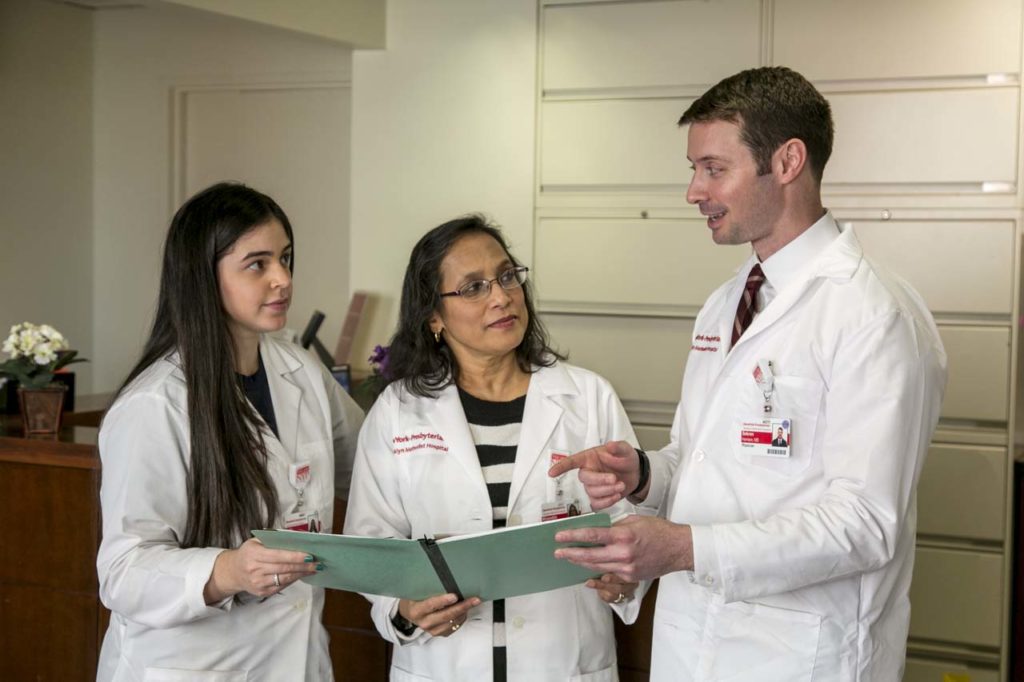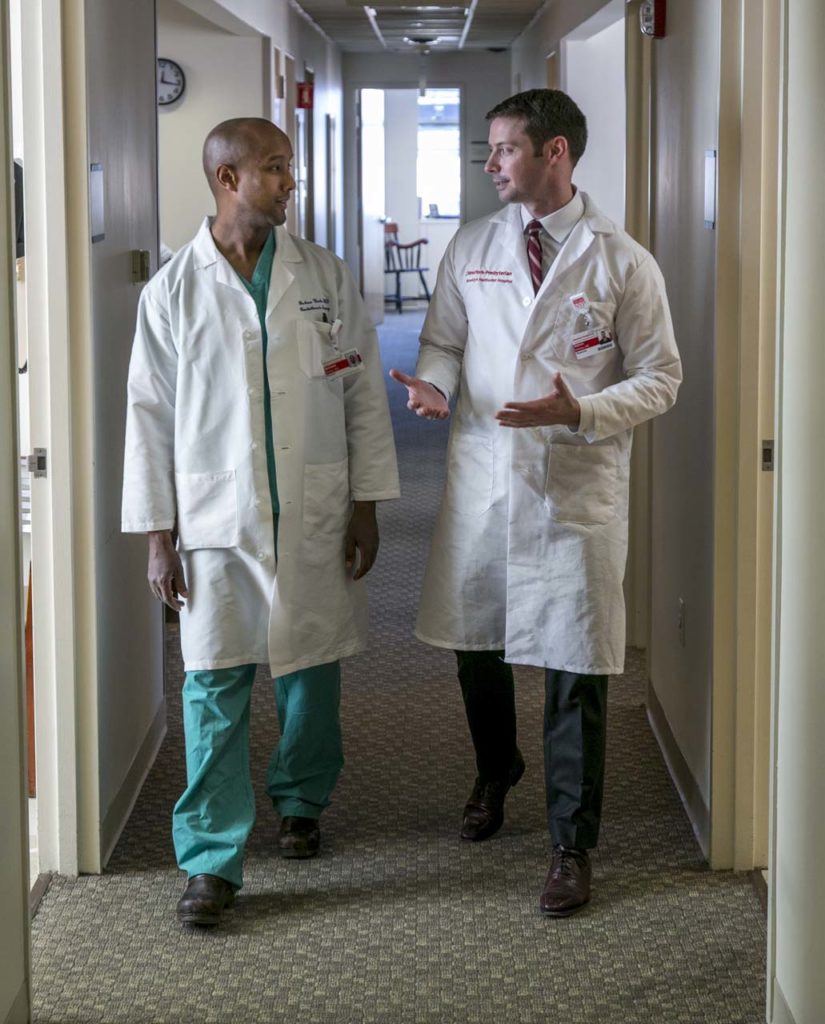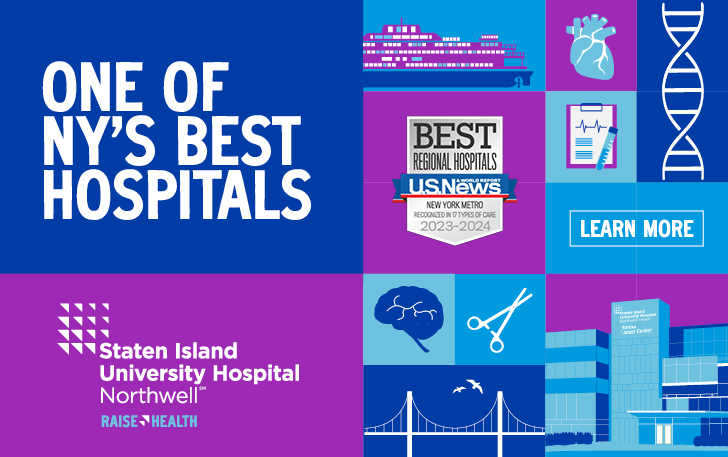THE NATION’S LEADING CANCER KILLER, LUNG CANCER IS UNDER RENEWED AND VIGOROUS ATTACK BY A VARIETY OF FRESH TREATMENT MODALITIES AT NEWYORK PRESBYTERIAN BROOKLYN METHODIST HOSPITAL’S DEPARTMENT OF CARDIOTHORACIC SURGERY
BY JESSICA JONES-GORMAN PHOTOS BY AMESSÉ PHOTOGRAPHY
More than 200,000 cases of lung cancer are diagnosed each year in the U.S., and it has been the leading fatal cancer in both men and women in the nation for several decades. But, thanks to the introduction of minimally invasive surgical techniques and targeted therapy, the treatment of lung and esophageal cancers has changed rapidly. With a multidisciplinary approach to diagnosing and treating thoracic malignancies and a commitment to providing innovative treatments, New York Presbyterian Brooklyn Methodist Hospital is at the forefront of that change.

“In terms of pure numbers, these types of cancer can be particularly devastating,” noted Dr. Sebron Harrison, chief of thoracic surgery in the Hospital’s department of Cardiothoracic Surgery, which handles a variety of heart and lung conditions. “But the strength of this world class department is that it offers a team of specialists who intensely care about each and every patient they treat. And that multi disciplinary approach, coupled with rapidly advancing medical innovations, offers so many layers of protection to patients and their families.”
The department, which consists of five full time cardiothoracic surgeons, a multi disciplinary tumor board, and a special cardiothoracic ICU step down, makes use of video assisted thoracic surgery (VATS) and robotic surgery to treat more than a dozen conditions.

“Together, we comprise a sizeable group that can bounce different cases off of each other,” Dr. Harrison said. “Every lung cancer case is presented before the multi disciplinary tumor board and evaluated by a variety of doctors, who collectively consider and tailor a specific course of treatment. It’s a formula of treatment with which we’ve had much success.”
Dr. Harrison, who was born and raised in Mississippi in a small rural town with only one stop light, earned undergrad and medical school degrees from the University of Mississippi before completing his general surgery residency at UAB Hospital in Birmingham, Alabama.
“Even at a very young age, I was always interested in medicine,” he said. “All of life’s most important moments happy or sad always involved some sort of involvement with a physician, so I was fascinated with the practice. As I grew older and started studying, this specialty simply meshed with my interests and strengths as a person. Surgery allowed me to have this immediate impact on patients’ lives that are not always shared in other aspects of medicine.”
Dr. Harrison completed his cardiothoracic residency at New York Presbyterian/ Weill Cornell Medical Center before taking a position at Memorial Sloan Kettering. He returned to serve on staff at the University of Mississippi Medical Center before taking the position at NYP Brooklyn Methodist two years ago.

“The Cardiothoracic department handles surgeries of the heart, lung, and chest area,” he explained. “Some cases are quality of life…people with hiatal hernias, severe acid reflux disease, or swallowing disorders, but the overwhelming majority of surgeries we perform, 75% to 80%, are cancer related.”
And the number one cancer the department deals with is that of the lung.
“One of the reasons why lung cancer is so devastating is because most patients are diagnosed at a very advanced stage, after the disease has spread to other organs,” Dr. Harrison said. “From a percentage standpoint, relatively few patients present at stage one, and unfortunately, a cure at those later stages can be complex,” but was quick to add that a landmark trial focused on screening and diagnosing at an earlier stage became a game changer as of 2011.
“This trial advocated for a low dose CT scan of the chest as a screening modality for lung cancer, similar to a mammography or a colonoscopy,” Dr. Harrison said. “It created a complete paradigm change in how we think about high risk patients. And in the past seven years, for the first time ever, a screening modality has lowered the mortality rate of this cancer.”
Other advances have also been of benefit to patients.
“Minimally invasive techniques have completely changed treatment and recovery,” said Dr. Harrison. “In the past, large incisions and much more invasive operations were required. It was a lot for patients to undergo and in many cases, some were too weak to even be considered for such procedures. Now, the same operations are being performed with a much smaller incision and two week hospital stays have lessened to just a few days,” adding that newer systemic treatments for lung cancer have also developed.

“To be able to directly target the cancer is a huge revelation.”
And Dr. Harrison believes those therapies will only expand in the future.
“It’s a time of hope and encouragement for those with esophageal and lung cancer,” he said. “With so many new treatments coming about in such a rapid fashion, there really is a lot of promise on the horizon.”
It’s a promise that the physician is happy to share with the residents of Brooklyn.
“I’m a Southerner at heart, but I’ve become extremely fond of my family here,” he concluded. “My Brooklyn patients are so caring, appreciative, and honest. I feel very privileged to work here. I think it’s the greatest city in the world.
NewYork-Presbyterian Brooklyn Methodist Hospital
506 6th Street / 718.499.CARE (2273)
www.nyp.org/brooklyn
